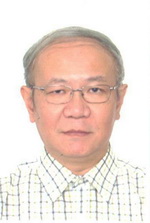
姓名:张立实
性别:男
学历:硕士
职称:教授
工作单位:四川大学华西公共卫生学院
教育情况:
1982年毕业于华西医科大学预防医学专业(本科),获医学学士学位。
1986年1月毕业于华西医大营养与食品卫生学专业,获医学硕士学位。
1994年4月至1996年4月赴日本国立卫生研究所作访问学者研修两年。
工作经历:
1970年12月至1978年2月在云南省大理市冶炼厂工作(工人、卫生员)。 1986年1月硕士研究生毕业后留华西医科大学公共卫生学院营养与食品卫生学教研室任教。1988年晋升讲师,1994年晋升副教授,1998年破格晋升教授。一直从事营养与食品卫生学、毒理学领域的教学、科研、保健食品研制开发、功能学评价、安全性毒理学评价和管理等方面的工作。1997年被批准为硕士导师,1998年被遴选为华西医科大学学术骨干,并担任华西医科大学公共卫生学院副院长,分管科研工作。1999年被遴选为博士导师、四川省学术和技术带头人后备人选,并获国务院政府特殊津贴。2001年进入四川大学“214工程”第二层次人才岗位,并被遴选为四川省学术和技术带头人、四川省卫生厅学术和技术带头人。2001.7~2005.7任四川大学华西公共卫生学院副院长,分管教学和科研工作。2013.12起任四川大学华西公共卫生学院营养食品卫生与毒理学系主任。
所受奖项:
1. 2006年“环境类激素污染物对人类健康的影响及其作用机理研究”获四川省科学技术二等奖(排名第二)。
2. 2005年“环境雌激素对三种雌激素反应性肿瘤细胞增殖的影响及作用机制研究”获河南省科学技术三等奖(排名第二)。
3. 2002年获第七届吴阶平医学研究奖、保罗·杨森药学研究奖二等奖(个人奖)。
4. 1996年“食品中农药残留限量标准研究”获中国预防医学科学院科技进步三等奖(合作单位排名第一)。
5.1993年“魔芋精粉对无机盐营养的影响和对有害无机离子的排阻作用”获四川省科技进步二等奖(排名第四)。
6. 1991年“魔芋精粉的保健效用研究”获四川省科技进步三等奖(排名第五)。
主要研究方向:
主要研究方向为营养与食品卫生学、食品安全风险评估、食品毒理学、保健食品的功效与安全性评价,长期从事该领域的教学及科研工作。在食品中有毒有害物质的风险评估、食品中功能因子的功效评价、特殊毒理学评价方法和替代方法的研究等方面有较高建树和丰富的经验。
代表性著作:
a) 营养与食品卫生学学习指导与习题集(卫生部规划教材,第二版,主编).人民卫生出版社(2013).
b) 毒理学试验方法与技术(卫生部规划教材,第三版,编委).人民卫生出版社(2013).
c) 毒理学基础(卫生部规划教材,第六版,编委).人民卫生出版社(2012).
d) 国家职业资格(公共营养师)培训教程(二~四级,副主编).中国劳动与社会保障出版社(2012)
e) 营养与食品卫生学(卫生部规划教材,第七版,编委).人民卫生出版社(2012).
f) 营养功能成分应用指南(“十一五“科技支撑项目,第一版,副主编),北京大学医学出版社,2011年6月。
g) 营养与食品卫生学(全国高等医药院校规划教材,案例版,副主编).科学出版社(2008).
h) Chen Jinyao, Song Yang, Zhang Lishi. Immunotoxicity of Atrazine in Balb/c Mice. Journal of Enviromental Science and Health, Part B 2013, 48: 1-9.
i) Chen Jinyao, Song Yang, Zhang Lishi. Effect of lycopene supplementation on oxidative stress: an exploratory systematic review and meta-analysis of randomized controlled trials. Journal of Medicinal Food 2013, 16(5): 1-14.
j) Chen Jinyao, Song Yang, Zhang Lishi. Lycopene/tomato consumption and the risk of prostate cancer: a systematic review and meta-analysis of prospective studies. Journal of Nutritional Science and Vitaminology 2013, 59(3): 213-223.
k) Zou Siying, Du Yu, Zhang Lishi. Genistein Induced Hemizygous-Type Loss of Heterozygosity in Thvmidine Kinase Gene of L5178Y Cells. Journal of Animal and Veterinary Advances. 2012, 11(24): 4655-4659.
l) Yi Shuai, Jun Guo, Yansheng Dong, Weijian Zhong, Ping Xiao, Tong Zhou, Lishi Zhang, Shuangqing Peng. Global gene expression profiles of MT knockout and wild-type mice in thecondition of doxorubicin-induced cardiomyopathy. Toxicology letters 2011, 200:77-87.
m) Liu Y, Fang Z, Liu L, Yang S, Zhang L. Detection of Epstein-Barr virus DNA in serum or plasma for nasopharyngeal cancer: a meta-analysis. Genet Test Mol Biomarkers 2011 Jul-Aug;15(7-8):495-502. Epub 2011 Mar 16.
n) Bo Deng, JianQing Zhang, Lishi Zhang , You Sheng Jiang , Jian Zhou , Daokui Fang, Huiming Zhang a, HaiYan Huang. Levels and profiles of PCDD/Fs, PCBs in mothers' milk in Shenzhen of China: Estimation of breast-fed infants’ intakes. Environment International 2011, 03, 022.
o) Hongmei P, Yulan S, Lishi Z. The effects of amitrole on thyroglobulin and iodide uptake in FRTL-5 cells. Toxicol Ind Health 2011 Mar;27(2):187-92.
p) Zhu M, Xie ZQ, Zhang LS. Characterization of Salmonella enterica serotype typhimurium from outpatients of 28 hospitals in Henan province in 2006. Biomed Environ Sci 2009 Apr;22(2):136-40.
q) Wu T, Fu J, Yang Y, Zhang L, Han J. The effects of phytosterols/stanols on blood lipid profiles: a systematic review with meta-analysis. Asia Pac J Clin Nutr 2009;18(2):179-86.
r) Min ZHU, Li-Shi ZHANG, Xiao-Fang PEI, and Xin Xu. Preparation and Evaluation of Novel Solid Chlorine Dioxide-Based Disinfection Powder in Single-Pack. Biomedical and Environmental Sciences 2008, 21(2):157-162.
s) Li Zhan, Masamitsu Honma, Li Wang, Makoto Hayashi, Desheng Wu, Lishi Zhang, Rajagura, and Takayoshi Suzuki. Microcystin-LR is not mutagenic in vivo in the λ/lacZ Transgenic Mouse (MutaTMMouse). Genes and Enviroment 2006, 28(2):68-73.
t) Li Zhan, Hiroko Sakamoto, Mayumi Sakuraba, De-Sheng Wu, Li-Shi Zhang, Takayoshi Suzuki, Makoto Hayashi, and Masamitsu Honma. Genotoxicity of microcystin-LR in human lymphoblastoid TK6 cells. Mutation Research. 2004,557:1-6.
u) Masamitsu Honma, Li-Shi Zhang, Hiroko Sakamoto, Masayasu Ozaki, Kenji Tateshita, Maki Momose, Makoto Hayashi, and Toshio Sofuni. The need for long-term treatment in the mouse lymphoma assay. Mutagenesis 1999, 14(1):23-29.
v) Li-Shi Zhang, Masamitsu Honma, Makoto Hayashi, Atsuko Matsuoka, Takayoshi Suzuki and Toshio Sofuni. Chromosome painting analysis of spontaneous and methyl methanesulfonate-induced trifluorothymidine-resistant L5178Y cell colonies. Mutation Research 1996, 370:181-190.
w) Li-Shi Zhang, Masamitsu Honma, Toshio Sofuni, Atsuko Matsuoka, Takayoshi Suzuki and Makoto Hayashi. The induction of micronuclei and gene mutations in L5178Y mouse lymphoma cells by hydroquinone and diethylstilbestrol: a comparison between short- and long-term treatments. Mammalian Mutagenicity Study Group Communications 1996, 4:113-120.
x) Li-Shi Zhang, Masamitsu Honma, Makoto Hayashi, Takayoshi Suzuki, Atsuko Matsuoka and Toshio Sofuni. A comparative study of TK6 human lymphoblastoid and L5178Y mouse lymphoma cell lines in the in vitro micronucleus test. Mutation Research 1995, 347:105-115.
y) Zhang, L.S., Tan, Y., Ouyang, Y.L. and Wang, R.S. Effects of high erucic acid rapeseed oil on fatty acid oxidation in rat liver. Biomedical and Environmental Sciences. 1991, 4(3):262-267.